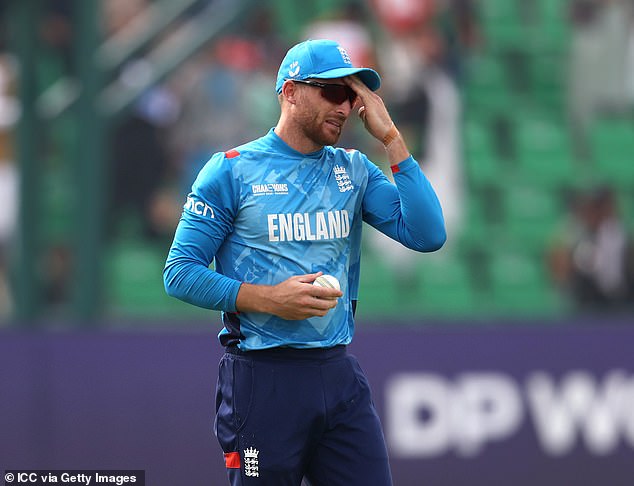The Swift Departure of Rob Key
The aftermath of England’s disappointing Champions Trophy campaign has left many within the cricketing community reflecting on what went wrong. One person who didn’t stick around to ponder the outcome was Rob Key, England’s managing director of men’s cricket. Within five hours of Afghanistan’s eight-run victory, Key was already on a flight back to London. His departure, though in keeping with his pre-planned schedule, might seem hasty to some, but it was not driven by disgust at the team’s performance. Despite the results leading to Jos Buttler’s resignation as captain, there has been no back-stabbing or name-calling within the squad. Instead, the team has maintained a ‘no blame culture,’ a testament to the positive environment fostered by coach Brendan McCullum.
A United Front in Adversity
Key’s brief return to the team camp before his departure allowed him to gauge the atmosphere. What he found was a united and supportive team, still standing behind their former captain, Jos Buttler. Mark Wood’s decision to return to the field despite a re-strapped knee, bowing four overs through pain, underscores the level of commitment and camaraderie within the team. This sense of unity extends beyond the cricket field; the players train hard, hit the gym, golf course, and bar together. They are a tight-knit group, and this cohesion has been a strength. However, the question remains: has this unity become too cozy?
The Dilemma of a Too Comfortable Environment
While a harmonious team environment might seem ideal for most aspiring international cricketers, it raises concerns about whether it can accommodate a diverse range of personalities. In the past, England’s best teams often thrived on a degree of creative tension. Kevin Pietersen, for instance, was known to be a difficult character, yet his influence was crucial when England won their first global trophy in 2010. Similarly, Andrew Flintoff and Duncan Fletcher’s strained relationship did not hinder their contributions to the team’s success in 2005. The current setup, however, seems to lack this kind of creative friction. Players like Jonny Bairstow, Sam Curran, and Will Jacks, who have been cast aside, highlight the challenge of maintaining a balanced team dynamic.
The Relaxation of Pressure
Brendon McCullum’s leadership style is characterized by a desire to remove pressure from his players. He emphasizes that his players are "too hard on themselves" and "care too much," elements he believes limit their talent. This relaxed approach is evident in the team’s training sessions, which often include games and activities designed to foster camaraderie and reduce stress. For example, the players participate in PIG, a football keepie-uppie game, and engage in other team-bonding exercises. While this approach has cultivated a positive atmosphere, it also raises questions about whether it can translate into the high-pressure environment of international cricket.
One-Dimensional Approach and Tactical Questions
Rob Key must also evaluate whether Brendan McCullum’s tactical decisions align with his enthusiasm. The selection for the Champions Trophy felt one-dimensional, with a heavy reliance on fast bowlers and aggressive batters. This approach, while effective in certain conditions, was exposed by the nuanced strategies of their opponents. England’s group included a higher proportion of right-handed batters and bowlers than in any of their previous 50 years of global tournaments. In contrast, teams like Australia and Afghanistan fielded a more balanced and varied lineup, with left-arm swing bowlers, wrist spinners, and off-spinners, providing a diverse range of angles and trajectories.
The Path Forward
England’s quest to play on the front foot has been fraught with pitfalls. Mismanaged dismissals and missed opportunities have been explained away with the recurring question, "What if it had gone for six?" However, the frequency of these "what ifs" cannot be ignored. The team’s blueprint of taking early wickets and scoring big runs has been met, but key moments have let them down. Internally, there is a belief that England should be heading into their next match with two wins, not two losses. Now, it’s time for another key moment, as Rob Key identifies the best candidate to transform contented losers into ruthless winners. The future of England’s white-ball squad hangs in the balance, and the next chapter will be crucial in defining their path to success.











